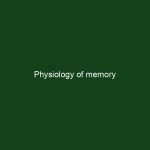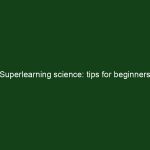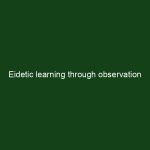We ask similar questions after each time we preread or read the text. The questions can be divided into questions building our curiosity so we can focus on the text and questions we asked in order to ensure we understood the text properly. This post mainly deals with questions of the second kind. If we …
Source of genius
Is being a genius something we get at birth, something we acquire by hard work or some luck that comes to people who are prepaired for it? Can someone willingly become a genius? There is simply not enough statistical evidence to decide one way or another. Take this article for example. From looking at it …
Physiology of memory
There is a reason we do not talk much about physiology of memory. We simply do not have enough information that does not spark controversy. Below are some examples. Is there a limit on chunking and working memory? Working memory is the basis of our memorization. It is studied via various cognitive tasks performed by …
Superlearning science: tips for beginners
I did not understand about learning science until the second year of my PhD. At some point every method and technique I used started to fail. I read a lot, and the more I read the more helpless I felt. Things just did not work as I expected. Then I suddenly made a breakthrough and …
Continue reading “Superlearning science: tips for beginners”
Eidetic learning through observation
Many scientific discoveries have been found through luck and attention to details. Probably 80% of debugging any programmist performs involves attention to details. Good user interface and graphical design require immense attention to details. Ability to observe minor changes and make good and quick decision is important in all human endeavors I can think of, …
Remembering formulas
VS on Facebook: Is it a good idea to use mind maps for formulas (like in Physics, Math etc) Lev Goldentouch: Using mindmap for formulas is pretty much what a computer does. As human, I would also dual code small funny animations of each specific factor in the formula and why/how it changes the end …
Comprehension vs retention
Very often I need to explain difference between comprehension and retention. An interesting tool to explain this is Bloom’s taxonomy of cognitive levels. While there is controversy related to validity of the taxonomy and which variation of the taxonomy is correct, I will use it below as a visualization tool. For more detailed explanation of each …








